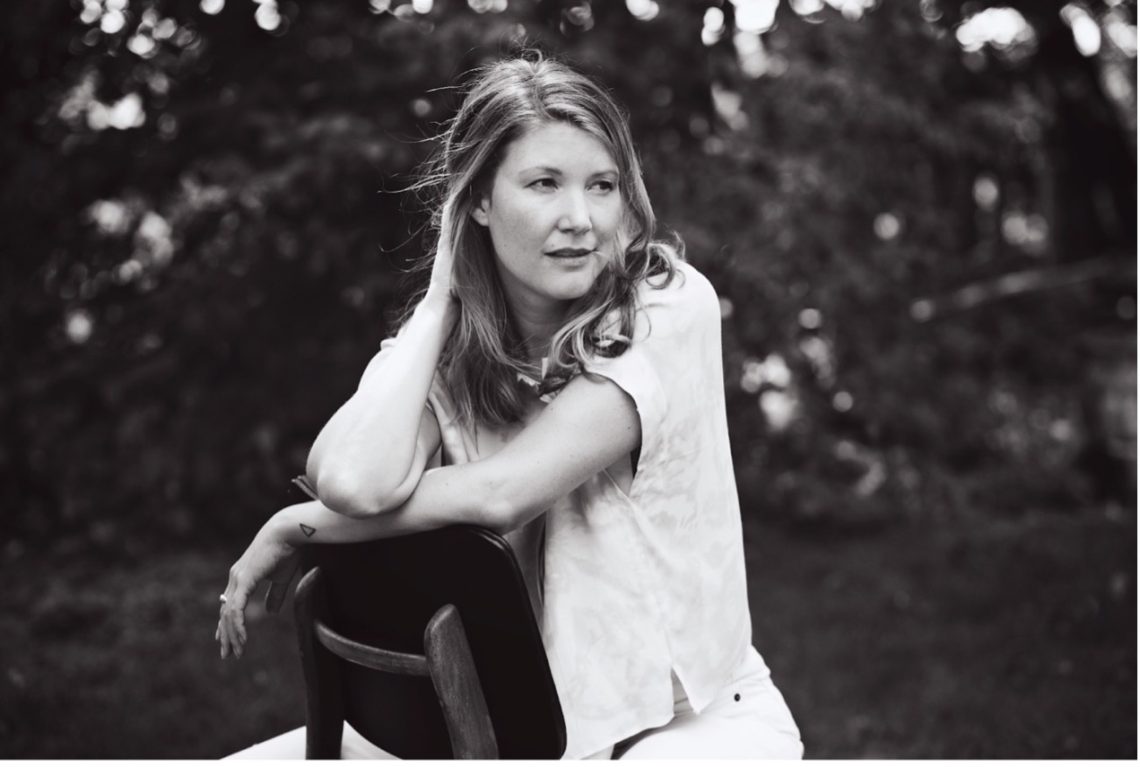The indie folk genre allows Anne van den Hoogen, also known as Rosemary & Garlic, to transform her songs into poetry. “For me, indie folk explores the boundaries of folk and other genres, which gives a lot of creative space in sharing an emotion or telling a story,” she says. “Indie folk songs are often pure from the heart, but starting from guitar or piano, they can also have a classical approach or maybe a shoegaze, depending on the arrangements. These additions really can give a song more meaning and that’s what I love to play with.” She places a variety of auditory and thematic Easter eggs for the listener. “For example, in my song “Television,” throughout the whole song, you’ll hear a heartbeat punch. At the end, there’s two lines of the Sylvia Plath poem “Death & Co.,” ‘The frost makes a flower, the dew makes a star, the dead bell, the dead bell.’ And the heartbeat – the punch of the drum – stops. It’s my way of implying that the character in the song drifted away in her poetry and eventually passed away. Those are the small musical things that are hidden inside of these songs that you don’t have to notice, but I think it’s what gives them some more meaning. I love to play with these kinds of things in the production of a song.” “Television” presented poignant nostalgia. “I wanted to start the album releases with a poetic piano song that, in a very modest Rosemary & Garlic way, was not shouting, ‘Hey we’re back,’ but was more like, ‘Hey, here’s something precious we’ve been working on.’ ‘Television’ has the perspective of an old woman in a nursing home. I wanted to build upon that perspective, as a lot of the songs we released after that are about that feeling of letting go, making peace or saying goodbye.”
Her latest album, A Room of One’s Own, is a sweet homage to her next adventure in life. “I had just moved to a new place, an old farm in the countryside, when the pandemic started. This house, with its beautiful garden and many rooms, was the beginning of a new Rosemary & Garlic album. Moving in here gave me a fresh start, but more importantly, this place gave me peace and quiet and a room of my own to work in. I started thinking about the concept of a room all for yourself (both metaphorically and literally) and was the starting point of the new album. The contemplations in the songs are about taking time for reflection, about having trust in change, in making decisions, letting go of certain patterns and embracing the moment just as it is. Along the way, my former bandmate Dolf Smolenears joined me in writing and producing this album. A Room of One’s Own is about finding your own space, inside of the body and mind and within this fragmented and chaotic world of today.” Virginia Woolf served as her primary muse. “The concept of a room reminded me of Woolf’s essay, ‘A Room of One’s Own,’ in which Woolf explains that a woman must have free time, money, and a room of her own if she is to write fiction. Woolf’s essay is almost 100 years old, but still very appropriate, unfortunately. She was a great thinker and wrote some beautiful essays on the representation and place of the female artist in the history of our Western society. I also love Virginia Woolf’s fiction, her subjective colorful gaze, and playful storytelling. Her writing always feels like it’s intertwined with time and the changing seasons. That’s definitely something I try to find in my songs, too.” Anne’s big move was perhaps Woolf’s prescription coming to fruition. “When I moved to our old farmhouse, I felt privileged to be able to work from my own studio room, and I still feel that way. It was just a while ago in Europe when women were just not able to make art because of the convention, the male ideas that our society was built upon. In countries like Iran, women are still fighting for the rights they are simply excluded from. There were girls from Iran coming to my concert in Istanbul, explaining to me that there was no way they could make music in their country. I won’t take my ability to make music for granted ever.”
Anne realized that while her vision for the band may not be traditional, it will nonetheless be fulfilling and true to her heart. “Sometimes all it takes is some courage to close a chapter and turn around and walk your own way,” she reflects. “Instead of working on Rosemary & Garlic to become a festival band and travel the world, I just really felt like I wanted to feel grounded, to live a small life. In that time of writing the album, I let go of a lot of expectations that I realized were not my own. I once read an article about a folk singer who grew his own groceries and could live off a few songs. That’s all I want and that’s where the name of the band suddenly feels right again.” As fate would have it, she would soon be birthing more than just the album. “I found out I was pregnant just before we started recording the album. Eventually, I recorded all the vocal tracks with a huge belly and I picked up recording the remaining backing vocals just a few weeks after my son was born. Looking back, I think that through these songs I was making space for him too, clearing some things out through my writings and starting this new chapter of my life with him in peace.” It’s all coalescing into a gorgeous whirlwind. After some much-needed musical catharsis, she is ready to settle back into calm. “Motherhood has given me peace in a way that I can prioritize what matters in life. But it comes with many new insecurities too. Sometimes, I just felt overwhelmed by the love and the fears that came with it. Luckily, I have just finished the recordings for my other band, called Habitants (shoegaze), in which I could jump into the deep, throwing a lot of those fears and anger out on the record. So yes, I’m up for some folky Rosemary songs again.” Within her little garden, rosemary and garlic will continue to thrive.
Read more Music Interviews at ClicheMag.com
Rosemary & Garlic Beckons to Serenity in New Album, “A Room of One’s Own.” Photo Credit: Gema Perez.



